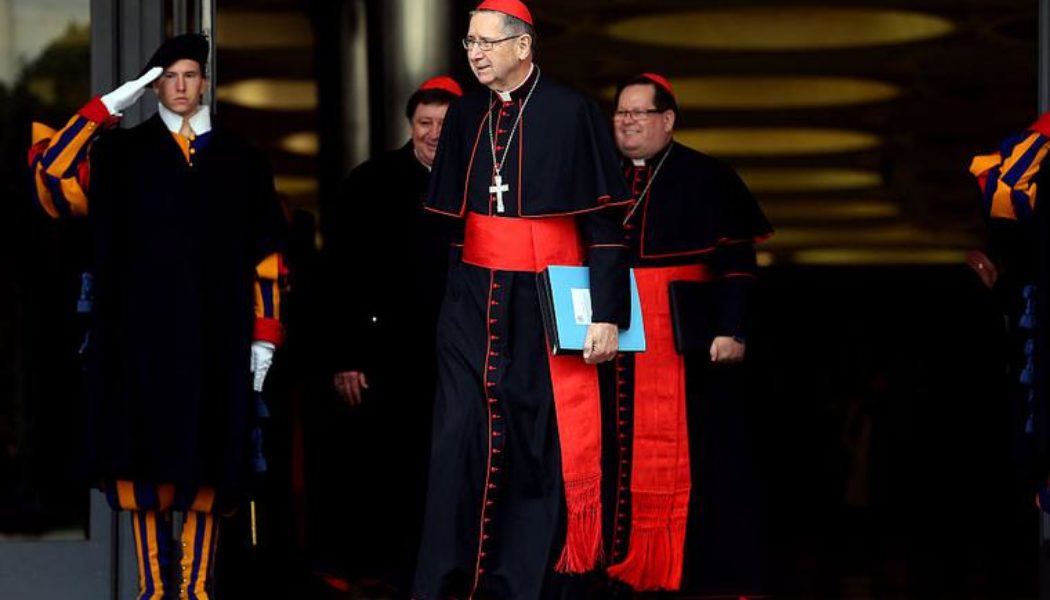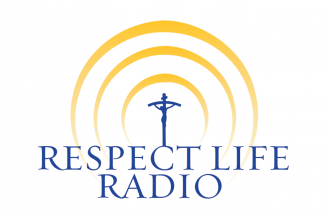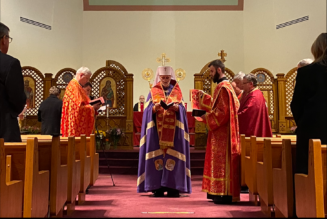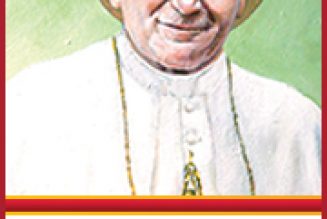
It is entirely likely that the lopsided vote in favor of the USCCB’s new Eucharistic document was produced in part by a reaction against Mahony’s unusual interview, published by Vatican News.
Editor’s Note: This story has been updated.
At 85, and years removed from exercising influence or enjoying honor in the Catholic Church in the United States, Cardinal Roger Mahony returned briefly to the spotlight last week on the occasion of the USCCB plenary meeting in Baltimore.
Cardinal Mahony sought to lend his prestige to those opposed to “The Mystery of the Eucharist in the Life of the Church,” a restating of Catholic doctrine on the sacrament at the heart of Catholic faith and life. It did not go well.
The document passed nearly unanimously, 222-8. It is entirely likely that the lopsided vote was produced in part by a reaction against Cardinal Mahony’s unusual and puzzling intervention.
The Eucharist document had two origins: first, the growing data that a very large number of Catholics do not believe what the Church teaches about the Eucharist, namely the Real Presence of the Lord Jesus; second, the question of worthiness to receive Holy Communion, a long-standing question in an age when nearly everyone present at Holy Mass receives Holy Communion. The election of President Joe Biden, a practicing Catholic whose pro-abortion policies put him at odds with Catholic teaching on the sanctity of life, made that question sharper.
The latter matter got most of the attention. Would the Catholic bishops explicitly tell President Biden that he would not be given Holy Communion? That was never on the table, as such a decision, if taken, belongs to the local bishop. Indeed, canon law, in relation to Catholic heads of state, may well reserve that decision to the Holy See.
So there was no “Biden clause” in the Eucharist document, but a restatement of perennial Catholic teaching, including on worthiness to receive Holy Communion. The document does not single out any particular person or office, but it made clear that promotion of abortion is incompatible with reception of Holy Communion.
Given all of that, it was highly irregular that the official Vatican Media site published an interview with Cardinal Mahony, archbishop emeritus of Los Angeles, just as the plenary meeting was opening. Cardinal Mahony delivered a broadside attack on the document, saying that the U.S. bishops should not even be considering such a teaching document, despite a large majority vote in favor of the initiative at the last meeting in June.
However the interview came to be, it was more than strange that the Vatican media operation would give a retired cardinal a platform to attack a conference initiative, precisely when that same conference has elected his successor, Archbishop José Gomez, as its president.
Obviously the archbishop of Los Angeles has his finger on the pulse of his brother bishops rather better than his predecessor. Cardinal Mahony found himself in the awkward position of declaring foolish something nearly all of his brethren found necessary, by a thumping vote.
Even more extraordinary, the interview included Cardinal Mahony declaring himself “thrilled” at the statement by 60 pro-abortion Catholic members of Congress, all Democrats, denouncing the U.S. bishops’ vote in June 2021. That those same Democrats went on within months to pass the most extreme pro-abortion legislation in American history made it peculiar that Cardinal Mahony would praise them now. Had he had any doubts about the value of the House Democrats’ call for “dialogue,” Bishop Robert Barron, auxiliary of Los Angeles, addressed that back in June, as well, pointing out that the 60 representatives will not even support legislation protecting the lives of babies who somehow survive an abortion attempt.
The U.S. bishops are all too aware of Cardinal Mahony’s delicate relationship with Archbishop Gomez. In 2013, when investigative reports revealed that Cardinal Mahony had a lamentable record on sexual-abuse cases going back decades, Archbishop Gomez declared that Cardinal Mahony would no longer have any “administrative or public duties” in Los Angeles. While the limiting of his public duties was not formalized — only the Holy Father can sanction a cardinal — it was as dramatic a declaration of non-confidence as one could expect.
It was not only in Los Angeles that Cardinal Mahony’s presence was not welcome. In 2018, he was appointed a papal legate to anniversary celebrations in Scranton, Pennsylvania. Local Catholics made it clear that they thought Cardinal Mahony’s presence would sully, not elevate, the occasion. The diocese took the same view, and, suddenly, the cardinal discovered himself otherwise occupied. In living memory there is not another case of a papal envoy being summarily rejected by the people to whom he was sent on a purely ceremonial mission.
Every American bishop knows that there is an informal deal on offer from the elite media. Adopt some liberal political positions, soft-pedal the Church’s more counter-cultural teachings, declare oneself “thrilled” with Democratic politicians — and you will get a pass on sexual-abuse cases. That’s why Cardinal Mahony escaped relatively unscathed in the court of public opinion as compared to Cardinal Bernard Law.
He could not escape all consequences, though, and Cardinal Mahony’s brother bishops were likely not surprised that he would try to return to the spotlight by praising the pro-abortion Democrats who so often were his allies.
The bishops were not impressed.
At the next gathering of the House Democrats, Cardinal Mahony will certainly be welcome. He may even be feted. If there are any relevant resolutions to consider, his position would certainly get more than eight votes.
Join Our Telegram Group : Salvation & Prosperity









